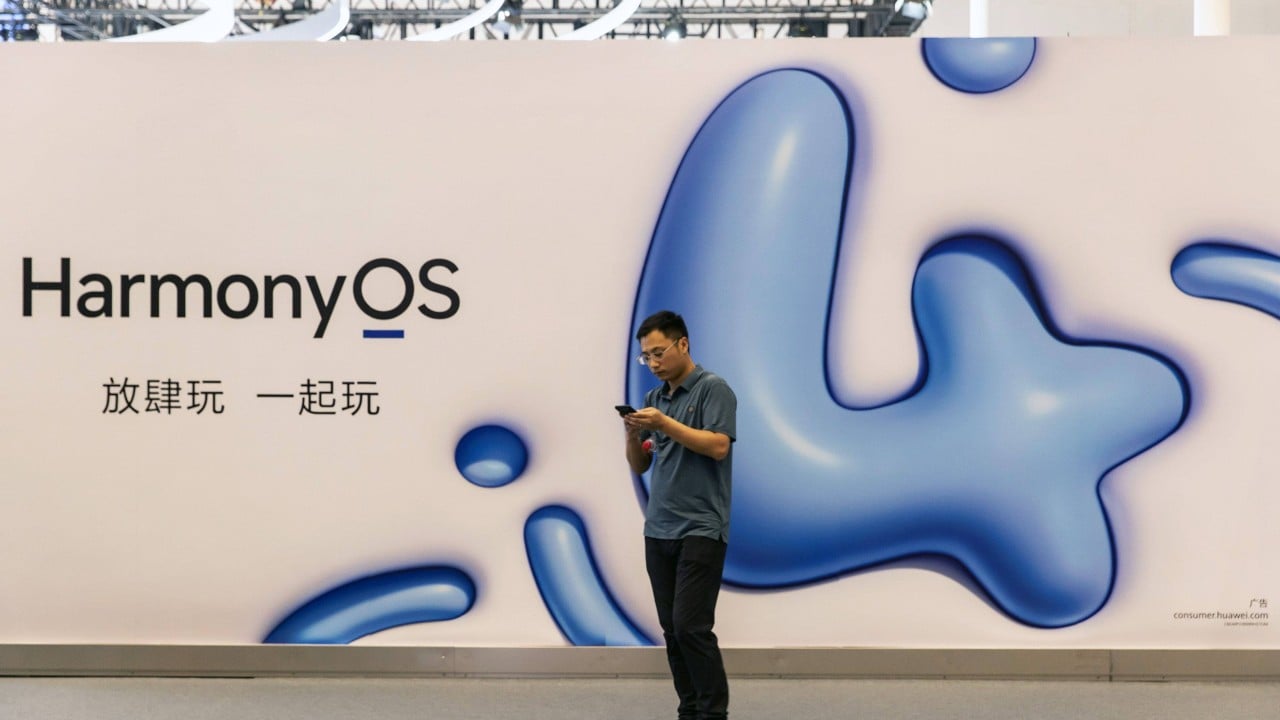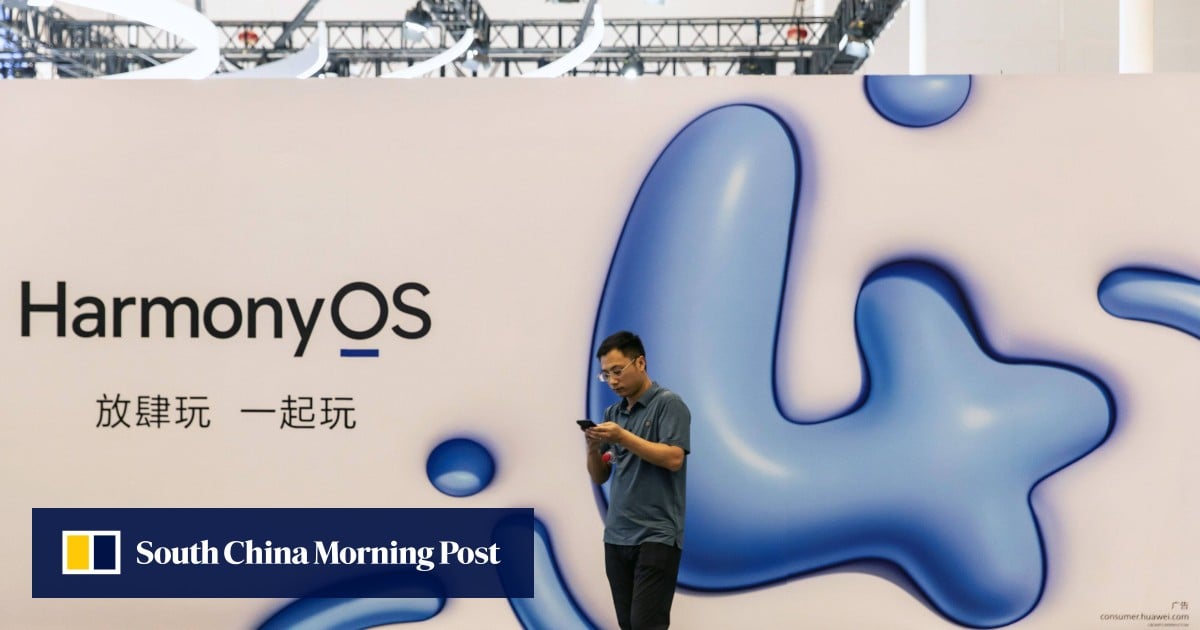
Huawei Technologies has unveiled the latest version of its home-grown mobile operating system HarmonyOS for developers, as the US-sanctioned telecommunications equipment giant takes on Google’s Android and Apple’s iOS in the Chinese market.
The developer preview version of HarmonyOS Next was made available to coders on Thursday, and the operating system will be launched for commercial use in the fourth quarter of this year, Huawei said at its developer conference.
HarmonyOS Next, billed as a major upgrade to Huawei’s mobile platform, will no longer support Android-based applications.
Over 200 industry partners have initiated the development of native HarmonyOS apps, and the company aims to get 5,000 partners on board by the end of 2024, Zhu Yonggang, president of Huawei Consumer Business Cloud Services, said at the Thursday event.
Meituan, the delivery services giant, has already finished the first version of its HarmonyOS app in the first batch of development partners, while other internet firms, such as lifestyle social media platform Xiaohongshu and online mapping service Amap, have also made progress.
Amap is backed by Alibaba Group Holding, the Post’s owner.
Huawei’s HarmonyOS tipped to beat Apple’s iOS in China in 2024: TechInsights
Huawei’s HarmonyOS tipped to beat Apple’s iOS in China in 2024: TechInsights
To encourage development of a more robust ecosystem for HarmonyOS, Huawei will also work with more than 280 companies and over 300 educational institutions to cultivate developers for the operating system, according to a company release.
Huawei will also invest 7 billion yuan (US$983 million) to support innovation in areas from HarmonyOS native apps to Software Development Kit (SDK), a toolset used to help developers build apps for a particular platform, according to posts published on HarmonyOS’s official Weibo account.
The adoption of HarmonyOS has been growing. Since its launch in August 2019, HarmonyOS currently runs on over 800 million devices, according to Richard Yu Chengdong, CEO of Huawei’s consumer business group, speaking at the Thursday event.
HarmonyOS was launched as an Android alternative three months after the US government added Huawei to its Entity List. Under this trade blacklist, the company is barred from buying software, chips and other US-origin technologies from suppliers without Washington’s approval.
Driven by Huawei’s return to the 5G smartphone segment with its P60 Pro model, HarmonyOS is projected to surpass Apple’s iOS as the second-biggest operating system in China this year, according to a report by TechInsights earlier this month.
Additional reporting by Ben Jiang

